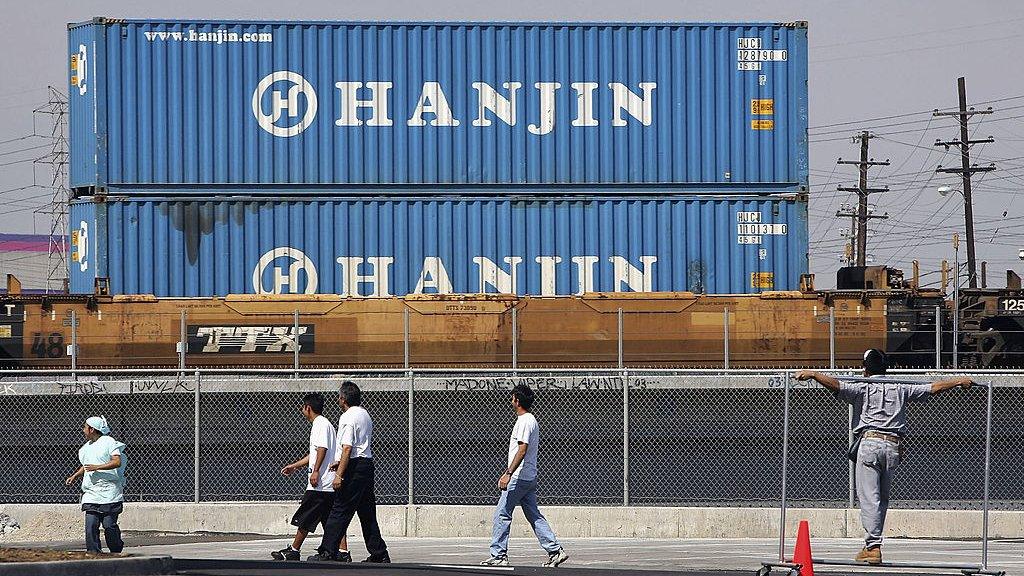Hanjin bankruptcy: Are South Korea's 'chaebols' in crisis?
- Published
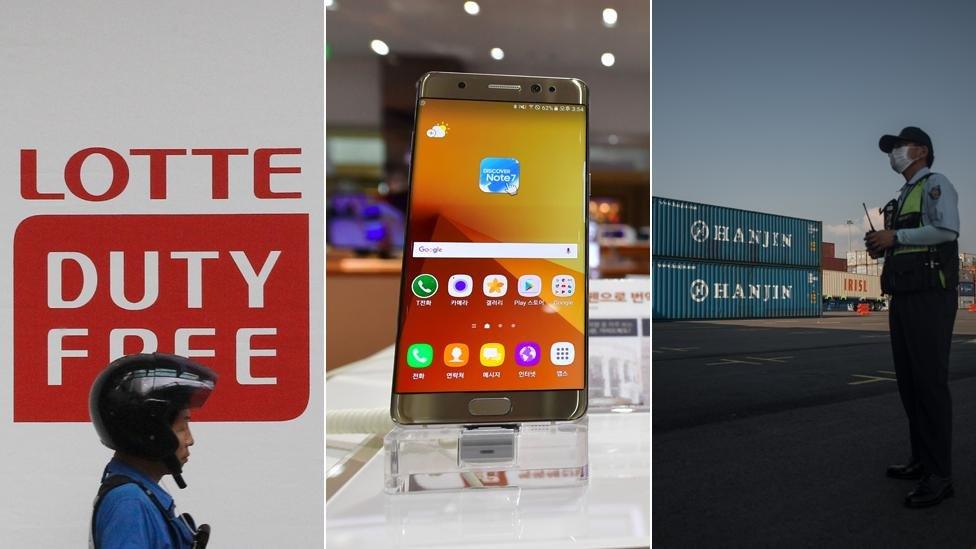
On the face of it, chaebols have hit a bumpy patch. Three of these quintessentially Korean family-controlled conglomerates are having difficulties at the moment: Samsung, Lotte and Hanjin Shipping.
Samsung has just recalled its Galaxy Note 7, the big gleaming smartphone which was meant to take the shine off Apple. It looked great, but with the small snag that some batteries caught fire.
Hanjin Shipping is near-bankrupt, protected from its creditors only by the courts, with its ships bobbing about on the ocean because ports fear they won't be paid the fees for letting the vessels dock.
And last month, the vice-chairman of the giant conglomerate Lotte committed suicide as a corruption investigation swirled around him and members of the controlling family.
Chaebols in crisis, then? Not quite - but the problems have revived the long-standing debate about whether they're fit for purpose.
Corporate structure
The three situations are different. In the Samsung case, there doesn't seem to be any connection between the company structure and its smouldering batteries - after all, product launches by rival Apple have not always gone smoothly either.
But the woes of the other two chaebols may be connected to the way they've been run as sprawling family-run companies.
Lotte consists of more than 60 businesses ranging from big department stores to construction, chemical manufacture and finance.
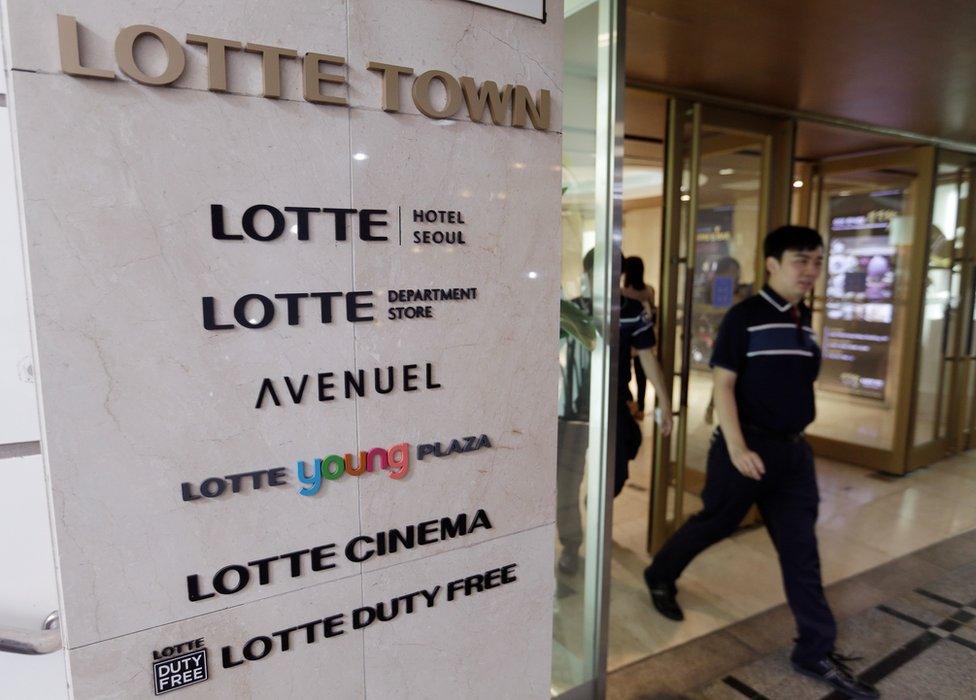
Lotte is one of the most well-known company names in South Korea
It's still controlled by the founding family whose members feud over who runs what. The two sons of the founder took their fight to run the company to court.
In August, Lotte's vice-chairman was found dead hours before he was due to be questioned in a corruption investigation.
So the Lotte story plays well to those who say the chaebol structure is flawed.
On the face of it, though, the third situation doesn't. Hanjin Shipping (part of Hanjin Group) is a victim of the slowdown in global trade - slower trade means lower demand for the company's cargo ships. No company could find that easy.
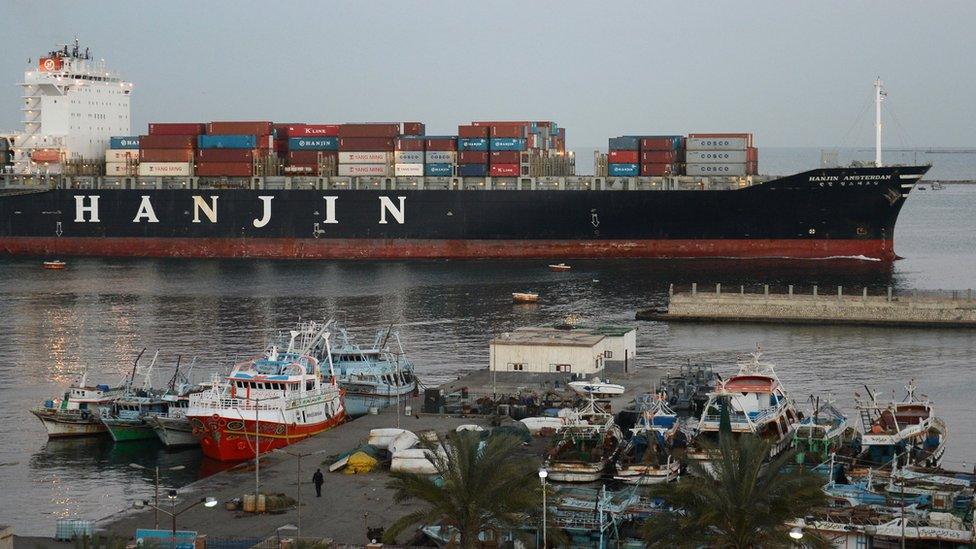
Hanjin is Korea's biggest shipping group and the world's seventh largest
But there is a wider question over whether the umbrella conglomerate has the right structure and attitude to deal with adversity.
Has it had enough outside influence to help the family operate well and does it have a history as a nimble well-run company?
Air of entitlement?
The parent company was founded by Cho Choong Hoon in 1945 as a trucking business, initially, with a single truck. The original Mr Cho made a fortune by hauling supplies for American forces in the Korean and then the Vietnam wars.
The founder died in 2002, external at the age of 86 and since then his descendants have run the company he created.
They have not always done it well. Korean Air is also part of Hanjin Group and it became an object of derision last year over the "nut-gate scandal" where Cho Hyun-ah, the daughter of the chairman Cho Yang-ho, felt entitled to berate and humiliate a steward on a flight run by the family firm.
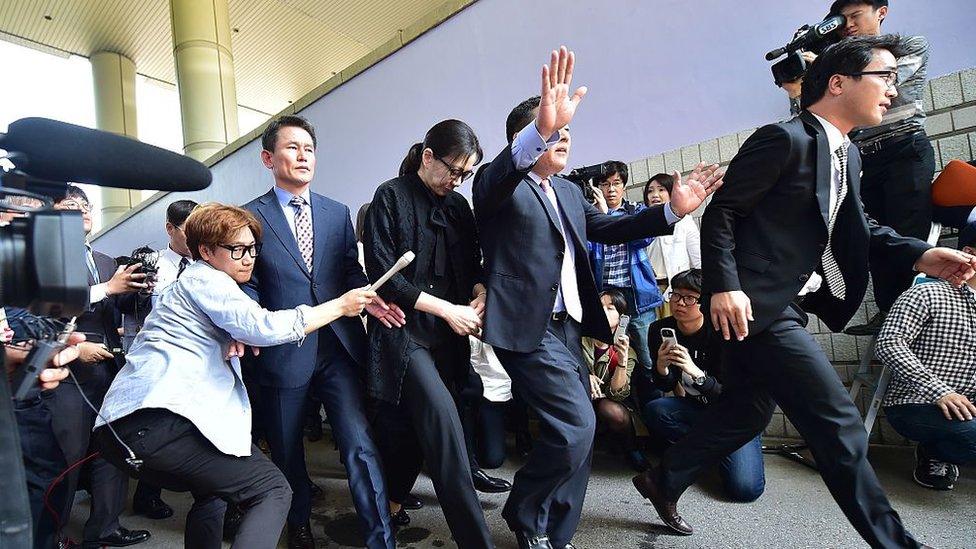
Former Korean Air executive Cho Hyun-Ah (centre) leaves an appeals court in Seoul
In the case of Hanjin Shipping, which is part of the same family conglomerate, there may also be an air of entitlement.
In June, for example, the former chairwoman of Hanjin Shipping, Choi Eun-young, was accused by prosecutors, external in Seoul of selling off shares in her own company the day before their price crashed when bad news was published. Mrs Choi is the widow of a member of the founding family.
According to South Korean media,, external she told reporters outside the court: "I will fully co-operate with the investigation."
She chaired Hanjin Shipping from 2007 until 2014 but, according to Lee Ji-soo, a lawyer at the Law & Business Research Centre in Seoul, didn't have the right qualifications.
"Without expertise or understanding of the industry, she was appointed as the CEO only because she was a relative," he said. "It is a typical chaebol story."
Korean Air problems
The management of Hanjin Group has been criticised before - and very seriously. In the 1980s and 1990s, Korean Air suffered a series of crashes and incidents which were blamed - at least partly - on the company's heavily hierarchical culture where junior staff were discouraged from speaking up (something which in a cockpit can prove deadly).
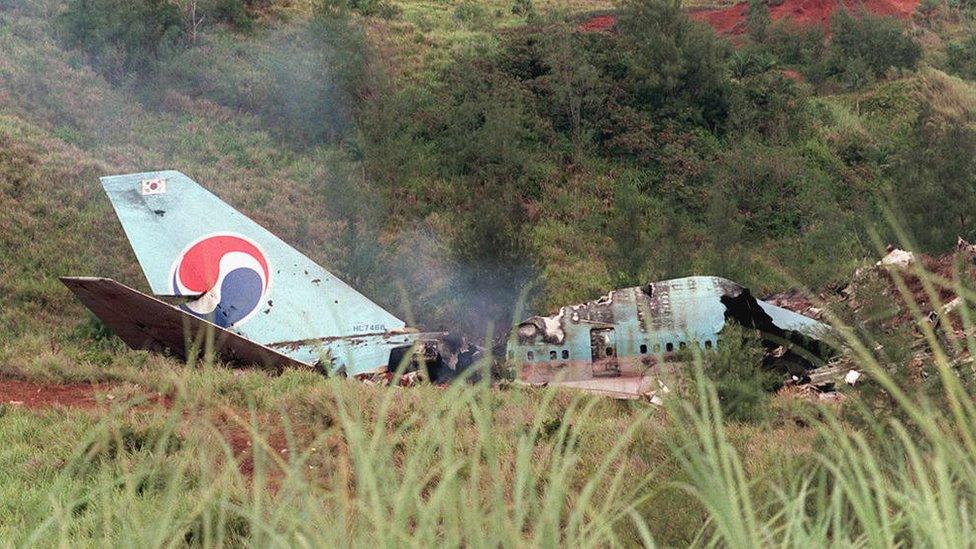
Korea's former president blamed Hanjin's "management style" for a series of Korean Air crashes in the 80s and 90s
The New York Times obituary, external of the founder said: "As chairman of Korean Air, Mr Cho's greatest failures began in 1983, when a Soviet MIG fighter shot down a Boeing 747 with 269 people aboard after it strayed into Soviet airspace. More than 800 people died in crashes of Korean Air planes between 1983 and 1999.
"President Kim Dae Jung publicly blamed the 'management style' of the group for the crashes, forcing Mr Cho to accept responsibility and resign as Korean Air chairman.
"Mr Kim's anger also reflected concern over the finances of the Hanjin group, which had accumulated a debt-equity ratio of 10 to one before the Korean economic crisis of 1997, during which Hanjin Engineering and Construction was merged with Hanjin Heavy Industries."
Family ties
None of this is to say that the troubles of Hanjin Shipping today were primarily caused by management or the family-dominated structure.
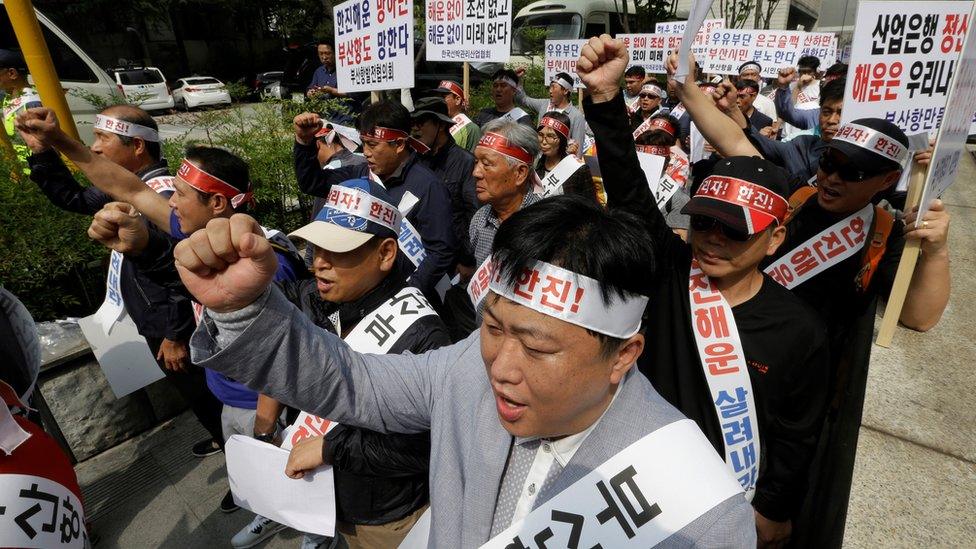
Workers from port-related organisations have pleaded with the government and Hanjin Shipping's creditors to save the troubled firm
But the broader history has raised the question again in South Korea of whether such tight family firms have unacceptable downsides.
Kim Woo-chan, a professor of finance at the business school at Korea University, told the BBC: "Many of the Korean chaebols have not been performing well. They're entrenched against shareholders. When it comes to appointing top management, they tend to appoint members of the family."
But he said there does now seem to be a political will to impose change. Lawmakers seem more open to introducing legislation which might make chaebols open up to outside ownership and management.
In the Hanjin case, the government seems determined not to bail out the sinking shipper. It was, after all, a government agency - the Korea Development Bank - which was one of the creditors that forced Hanjin Shipping to the bankruptcy court.
But there is some way to go yet. Cultures and structures don't change overnight.
- Published6 September 2016
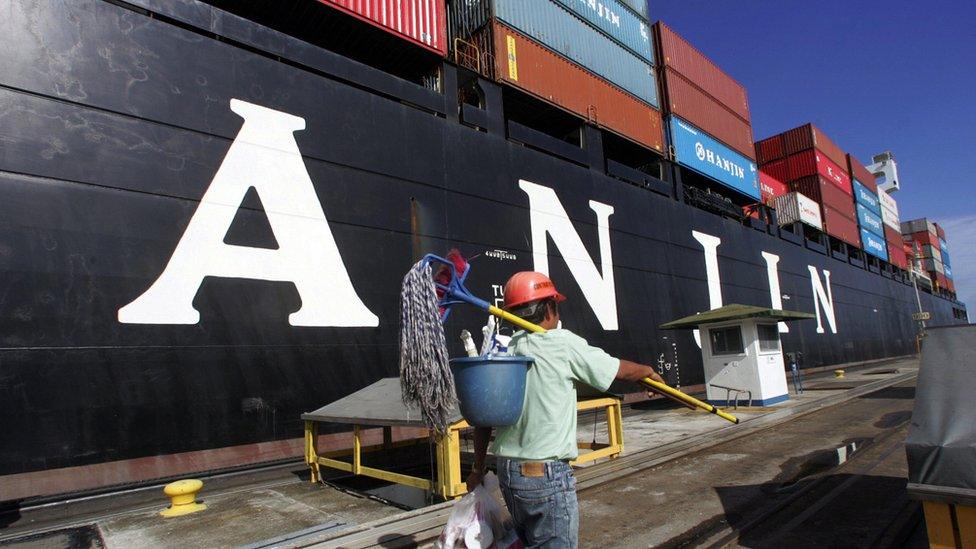
- Published5 September 2016
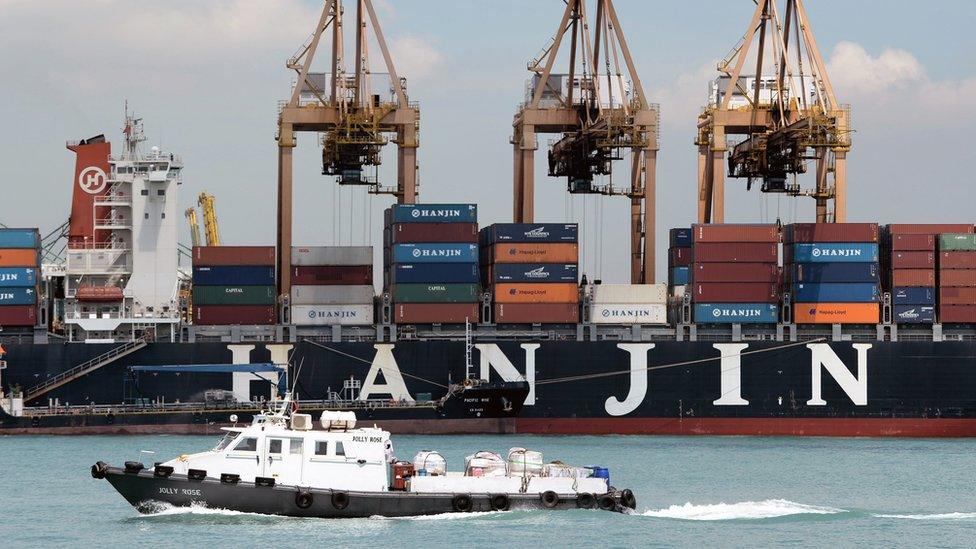
- Published1 September 2016
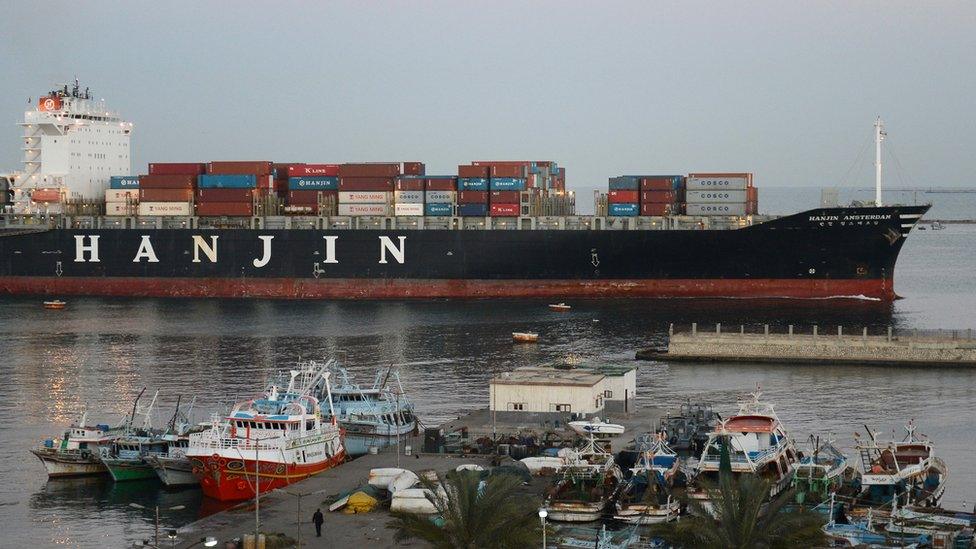
- Published31 August 2016
